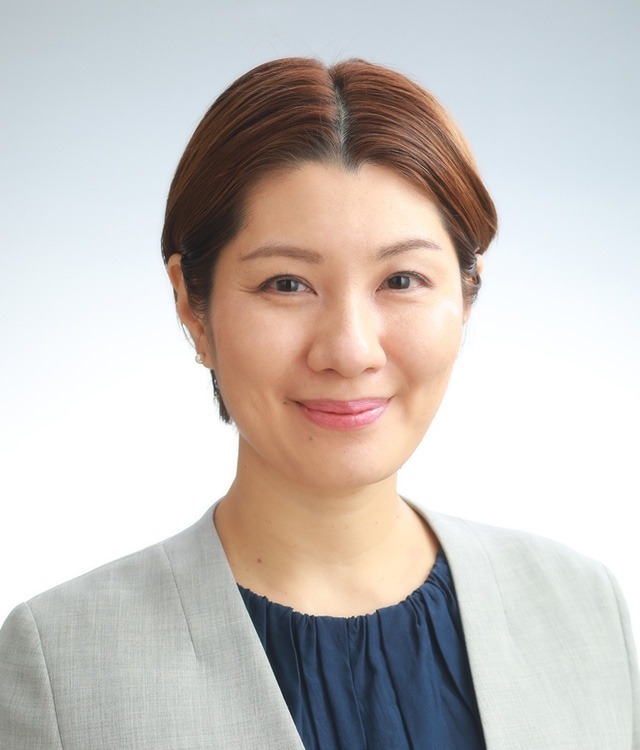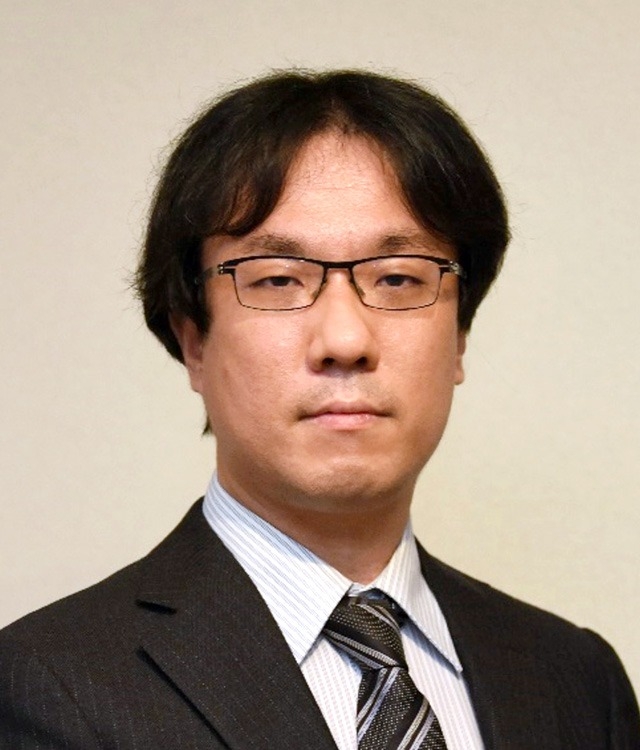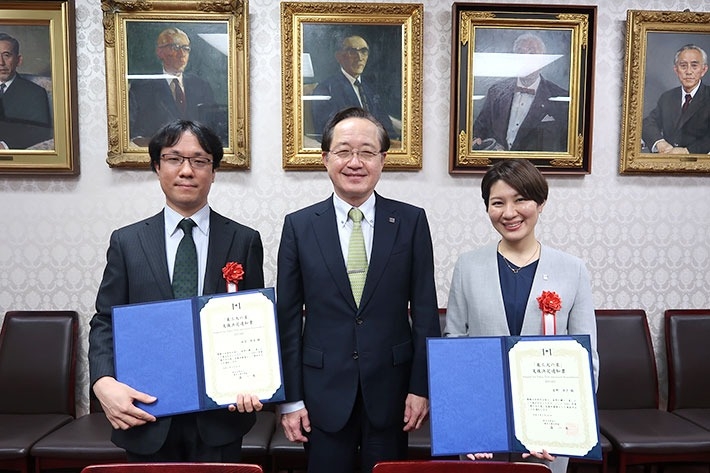Associate Professor Ayuko Hoshino of the Department of Life Science and Technology, School of Life Science and Technology and Assistant Professor Tomohiro Amemiya of the Laboratory for Future Interdisciplinary Research of Science and Technology, Institute of Innovative Research have been selected for the Support for Tokyo Tech Advanced Researchers (STAR) grant in FY 2021.
The STAR grant is awarded each year to promising young researchers who grapple with research topics that have the potential to become national projects in the future. Other recipients may include those who have achieved distinguished results in the fundamental sciences. Through the STAR grant, Tokyo Tech seeks to support up-and-coming 'shining stars' in the next generation of researchers.
For this 9th call, two "STARS" were selected based on consultation by the President and the Director of the Office of Research and Innovation.
Research overview and Researcher Comment
Ayuko Hoshino
Associate Professor, School of Life Science and Technology
Research overview: Exosomal proteins in disease: Mechanistic insight and biomarker potential

Exosomes are nano-sized vesicles that are secreted by all cells. They were first discovered as a waste disposal mechanism. However, in 2007, secreted exosomes were reported to be incorporated into other cells, revealing a novel function in cell-cell communication. Furthermore, biological information contained in exosomes are reported to reflect body condition, offering potential use as biomarkers for various diseases. We have shown that cancer cells prior to arriving at the metastatic organ, send exosomes to the future organ site and change their environment to a favorable one for cancer to successfully metastasize. Through exosome research, we aim to elucidate exosome driven disease pathology and develop novel treatments, as well as identify quantitative biomarkers for pathological conditions, such as autism spectrum disorder. In the future, we would like to unravel the role of exosomes in both disease and normal state, and to clarify the physical significance of the information exchange between cells using exosomes.
Researcher Comment
It is my honor to be selected as a recipient of the STAR grant. I would like to express my heartfelt gratitude to all the supporters of the Tokyo Tech Fund and the members of the selection committee. I believe that there is much research that can only be pursued with this kind of support. Especially in a novel research field, such as exosome research, where every new step is a challenge, the mind and action "to try" is very important for expanding your research area. In this context, I feel that this support program, which provides financial support with a high degree of flexibility, is truly encouraging us to take the next steps. With this support, I am determined to continue in exosome research for deciphering future therapeutic potential.
I would like to take this opportunity to express my heartfelt gratitude to all the faculty members and members of my laboratory who have supported my research life.
Tomohiro Amemiya
Assistant Professor, Institute of Innovative Research
Research overview: Photonic nanostructures opening up interdisciplinary research fields

Photonic nanostructures opening up interdisciplinary research fields
Photonic nanostructures arranged with a certain periodicity enable different types of light manipulation by utilizing the interaction between light and matter inside the structure. To date, various structures have been realized by using nanofabrication technologies for semiconductors and metals.
Among these photonic nanostructures, my research focuses on "metamaterials" and "topological photonic crystals". As for metamaterials, I aim to realize new functions, including optical cloaking, by taking advantage of their ability to freely manipulate light in free space. Topological photonic crystals, on the other hand, bring the concept of mathematical topology into the field of light, allowing for the systematic control of the two internal degrees of freedom of light. By applying them to optical communications and spectroscopy, I aim to realize new devices beyond the framework of conventional technologies.
Researcher Comment
I am honored to have been selected as a STAR grant recipient. I would like to express my deepest gratitude to all the contributors and selection committee members of the Tokyo Institute of Technology Fund. I would also like to take this opportunity to express my sincere gratitude to all the professors and collaborators who supported me, as well as to the laboratory members who are working hard on this research. With this support, I will make further efforts in providing better results.

From left: Assistant Professor Tomohiro Amemiya, President Kazuya Masu and Associate Professor Ayuko Hoshino
About the STAR grant
Purpose
Funded by the Tokyo Tech Fund, this program aims to provide large-scale support to bright young researchers who create new value based on various unique research achievements in the fundamental sciences. This objective is in line with the Institute's mid-term goals and contributes to enhancing research capacity.
Selection process
Based on their career and research achievements, recipients are selected by the president and the head of the Office of Research and Innovation. Individuals cannot apply for this grant.
Selection criteria
-
Young researchers engaged in a project which contributes to strategic policies on the national level
-
Young researchers who demonstrated outstanding achievement in basic research
Eligibility
Early-career researchers with a title of associate professor or below (in principle under the age of 40)
. Any information published on this site will be valid in relation to Science Tokyo.








